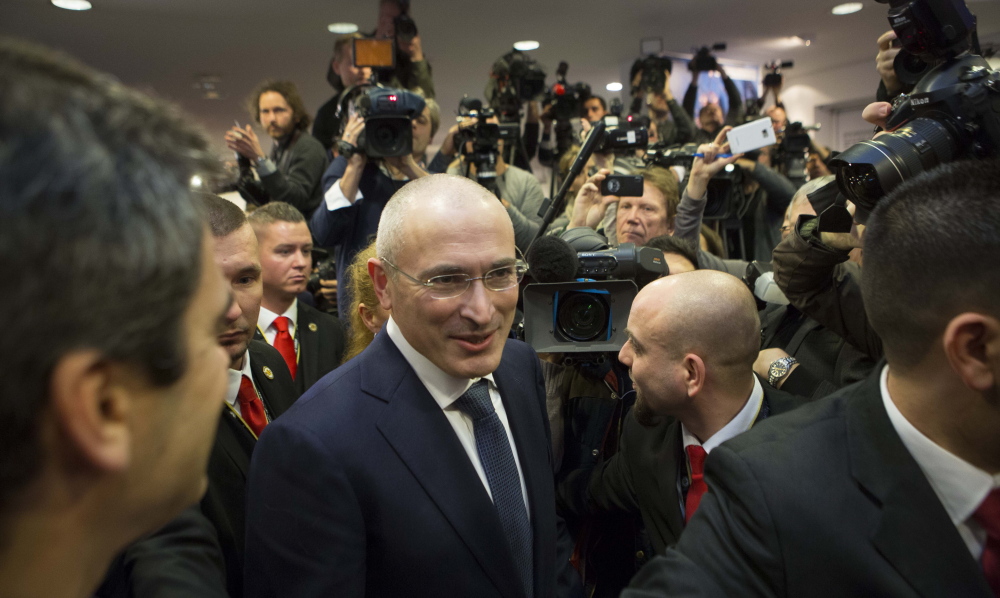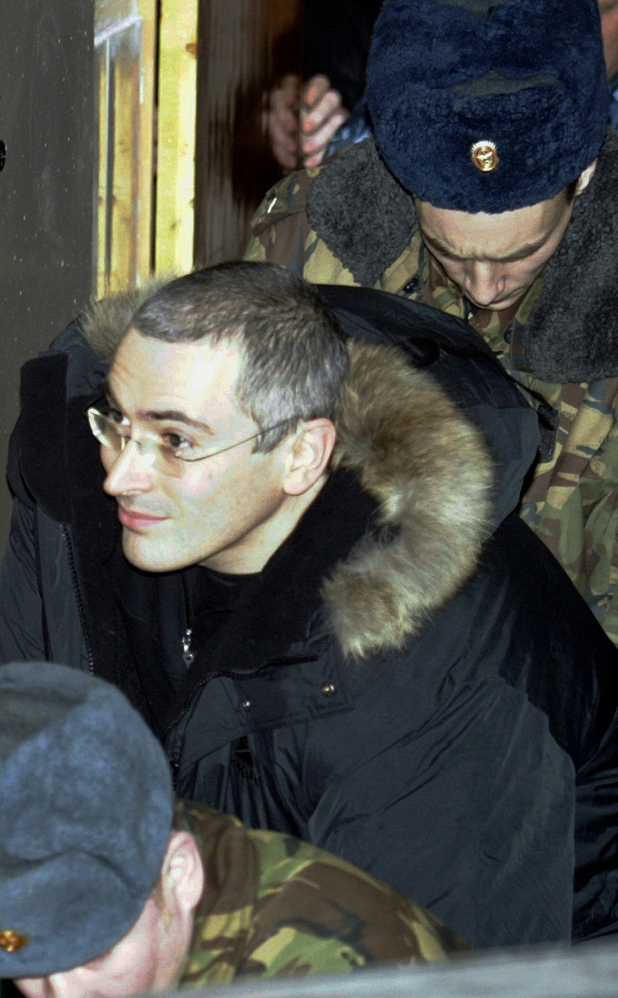MOSCOW — Mikhail Khodorkovsky has yet to decide how he will spend the rest of his life, but one thing is clear: The former Russian oil tycoon, who has castigated the Kremlin throughout the decade he has spent in prison, is not going into politics. Instead, he’ll devote his time to social causes and helping secure the release of other political prisoners.
Thirty-six hours after his dramatic release from prison, Khodorkovsky told reporters at a packed news conference in Berlin that he was grateful for the support he had received during his long incarceration.
Once Russia’s richest man, Khodorkovsky was arrested at gunpoint at a Siberian airport in 2003 and charged with massive fraud and tax evasion. His supporters say the case, which bankrupted Yukos, the oil company he founded, was orchestrated by the Kremlin to punish him for his political activities.
Russian President Vladimir Putin granted his foe a surprise pardon Friday. He was released and flown to Germany on a private jet.
Khodorkovsky, who once said the worst thing about prison was sunshine deprivation, looked pale Sunday, but still wore the beguiling smile famous from his days as Russia’s most successful oil man. Speaking in Russian, he stressed that he had no intention of challenging Putin for the Russian presidency. “I am not going to get involved in a struggle for power. That’s not for me,” he said.
The news conference was held at Berlin’s Checkpoint Charlie Museum, which documents successful escapes from Soviet-dominated East Germany to the West during the Cold War.
Khodorkovsky said his release should not detract attention from situations of other political prisoners in Russia. He said he would do “everything possible” to help secure their freedom.
With his sentence due to expire in August 2014, Khodorkovsky knew German diplomats were trying to negotiate his early release. But simultaneously, Russian prosecutors were preparing fresh charges that could have kept him in jail for much longer.
He said it was a total surprise when he was woken in his cell at 2 a.m. Friday by the prison commandant who told him, “You’re going home.” Only when he was aboard a helicopter bound for St. Petersburg did he learn that his final destination would be in Germany.
Hans-Dietrich Genscher, the former German foreign minister, acted as a mediator and played a critical role in getting Putin to agree that an appeal for pardon by Khodorkovsky would not be construed as an admission of guilt.
Khodorkovsky explained that he had always held out against appealing for clemency because, if seen as an admission of guilt, the plea could be used by Russian prosecutors as a pretext to charge his former colleagues at Yukos.
A state television broadcast Sunday evening vilified Khodorkovsky, recounting how the ex-tycoon had grown rich in the 1990s – the wild early years of Russian capitalism – by dishonestly “milking the system.”
Khodorkovsky said that he had no plans to return to business or to fight to recover his assets.
Copy the Story LinkSend questions/comments to the editors.




Success. Please wait for the page to reload. If the page does not reload within 5 seconds, please refresh the page.
Enter your email and password to access comments.
Hi, to comment on stories you must . This profile is in addition to your subscription and website login.
Already have a commenting profile? .
Invalid username/password.
Please check your email to confirm and complete your registration.
Only subscribers are eligible to post comments. Please subscribe or login first for digital access. Here’s why.
Use the form below to reset your password. When you've submitted your account email, we will send an email with a reset code.